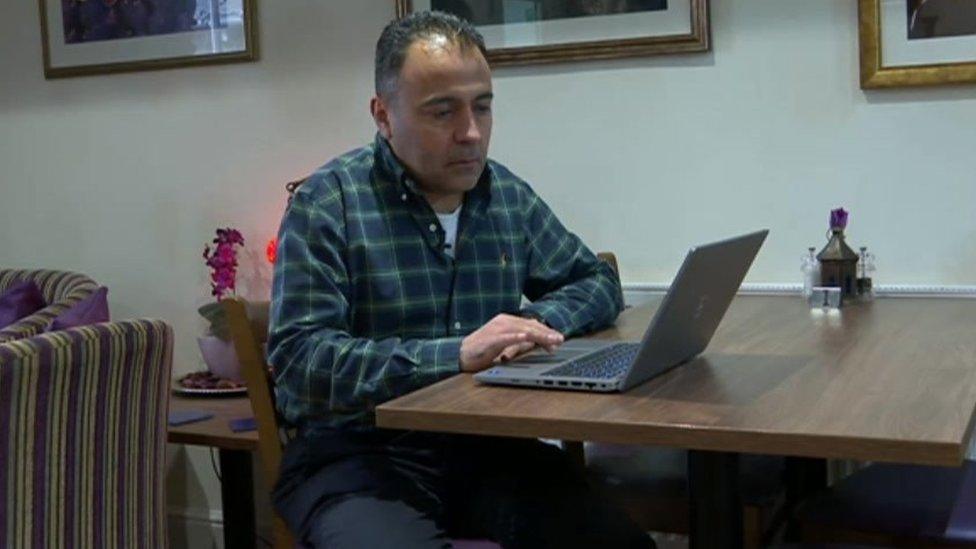Turkey-Syria earthquake: Lancashire search dog helps find survivors
- Published
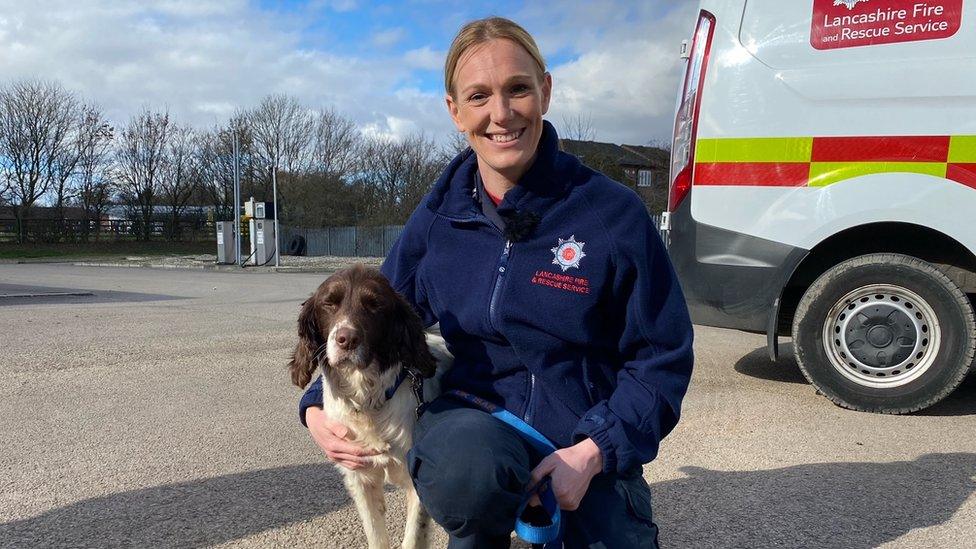
Lindsay Sielski and her search dog Davey were part of a team of 77 UK specialists
A Lancashire search and rescue team who flew to Turkey to help after a deadly earthquake said search dogs were a "huge asset" in finding survivors.
Six firefighters and four dogs joined a team of 77 specialists from the UK in Hatay earlier this month.
Lindsay Sielski and her search dog Davey spent 10 days working on searches which could last up to 18 hours.
The team rescued eight people and the dogs found a further three who were then rescued by local teams.
"There was utter chaos and devastation around us," UK International Search and Rescue Team K9 Lead, Ms Sielski said.
"For every area where we had intelligence that there may be someone alive in there Davey would be up he would use his nose and he would be able to sniff out through cracks in the rubble to let us know if there was anyone alive in a building or a collapsed structure."
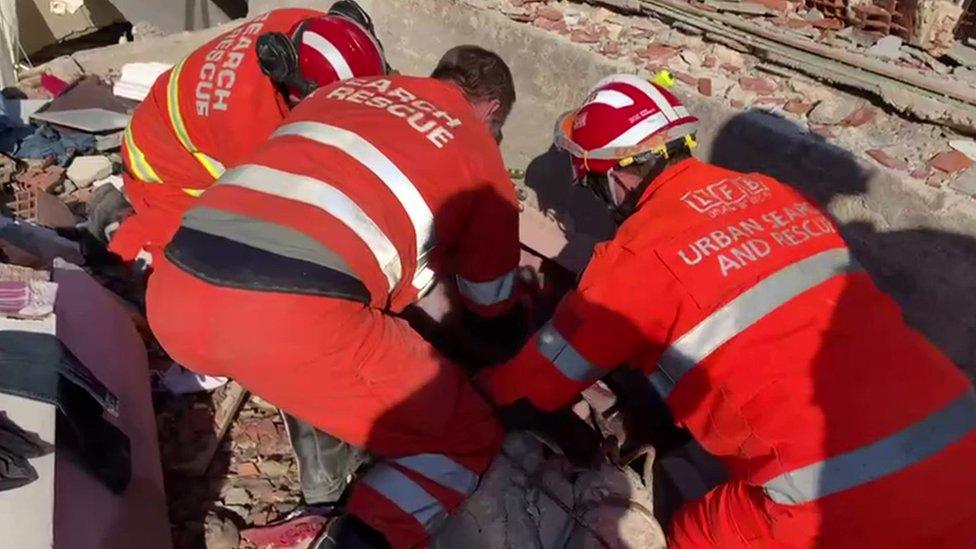
The firefighters searched for survivors in rubble
Springer Spaniel Davey was chosen for his agility, size and ability to trace human scents. The dogs also help in the protecting of the rescue crew as they are able can search small or dangerous spaces crew are unable to reach. Each dog searched about 40 buildings a day, Ms Sielski said.
"They can just do the things that we can't do as human beings, we've also not got the technology that can work as swiftly as efficiently or as accurately as what the dogs can do," she added.
"Not once did any of the dogs want to stop searching.
"They don't realise that they are doing life saving work and how they are protecting the rest of out team.
"We see it as what they are trained to do - and they see it as having a great time."
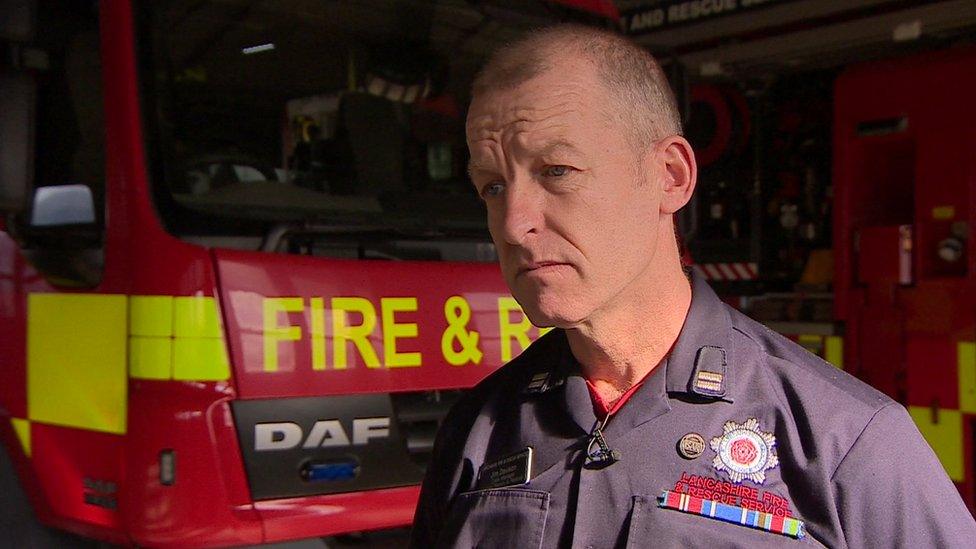
Lancashire Fire and Rescue Crew Manager Jim Davison said the scale of devastation was "massive"
Crew Manager for Lancashire Fire and Rescue Jim Davison, who has been working in international rescues for 20 years, said the scale of the devastation was "massive".
"They were hard days - you're taking knocks as you're working, there were situations that were very difficult," he said.
"But everyone in the team, every one of the 77 knew why we were there, knew why we got on the plane.
"To say they were on point the whole time is an understatement. They really were fantastic."

Why not follow BBC North West on Facebook, external, Twitter, external and Instagram, external? You can also send story ideas to northwest.newsonline@bbc.co.uk, external
- Published17 February 2023
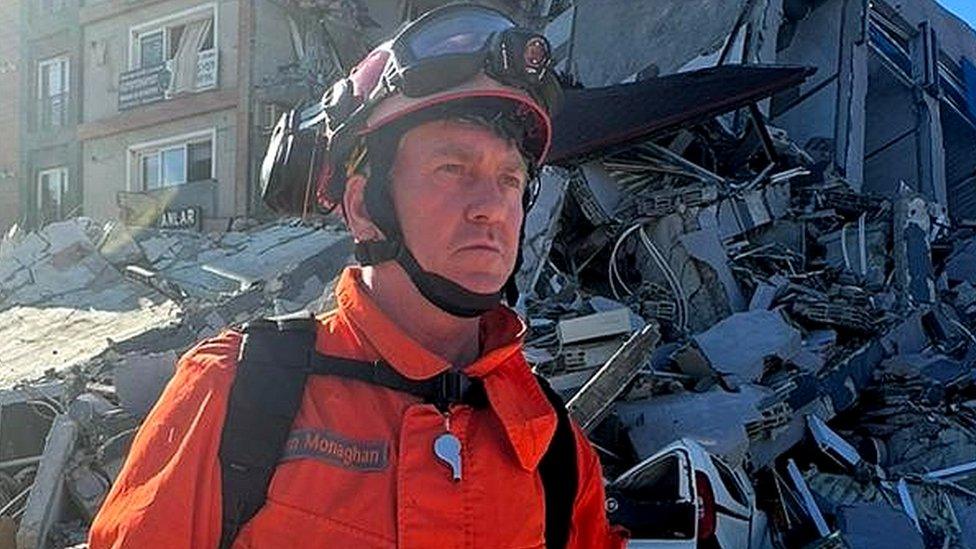
- Published17 February 2023
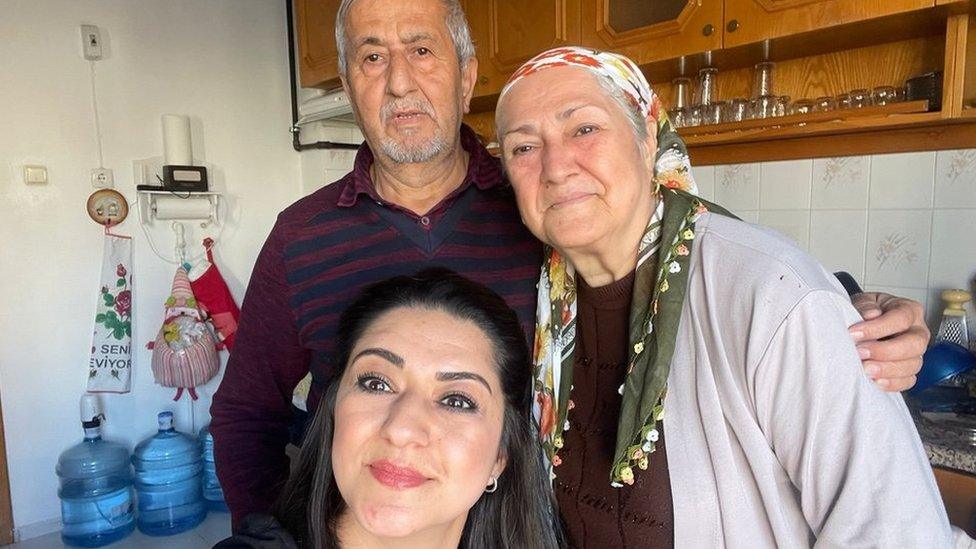
- Published17 February 2023
